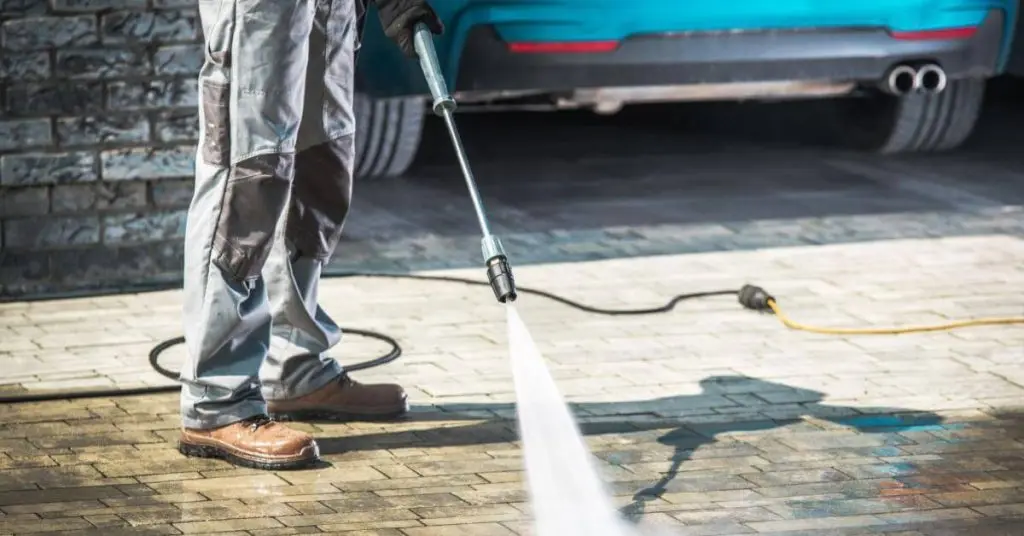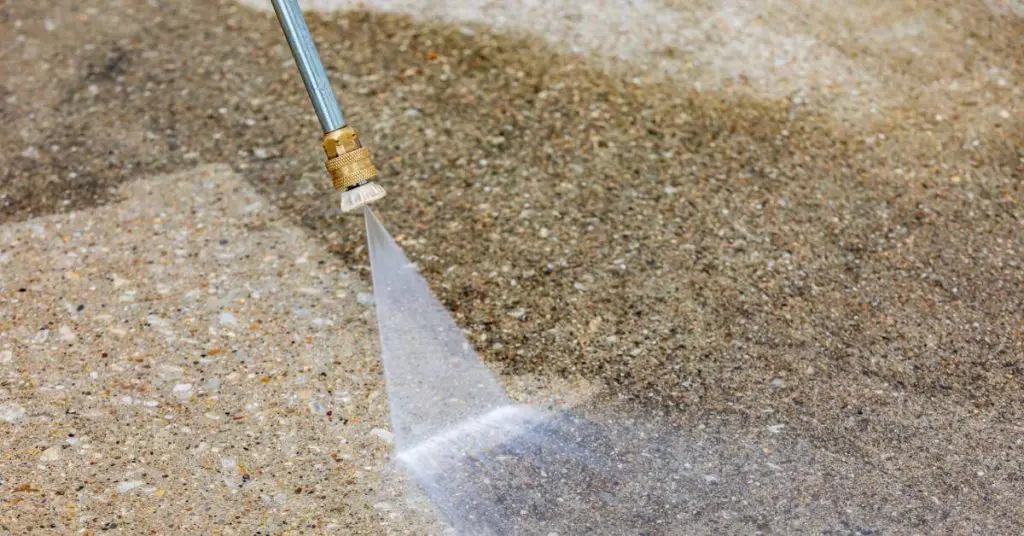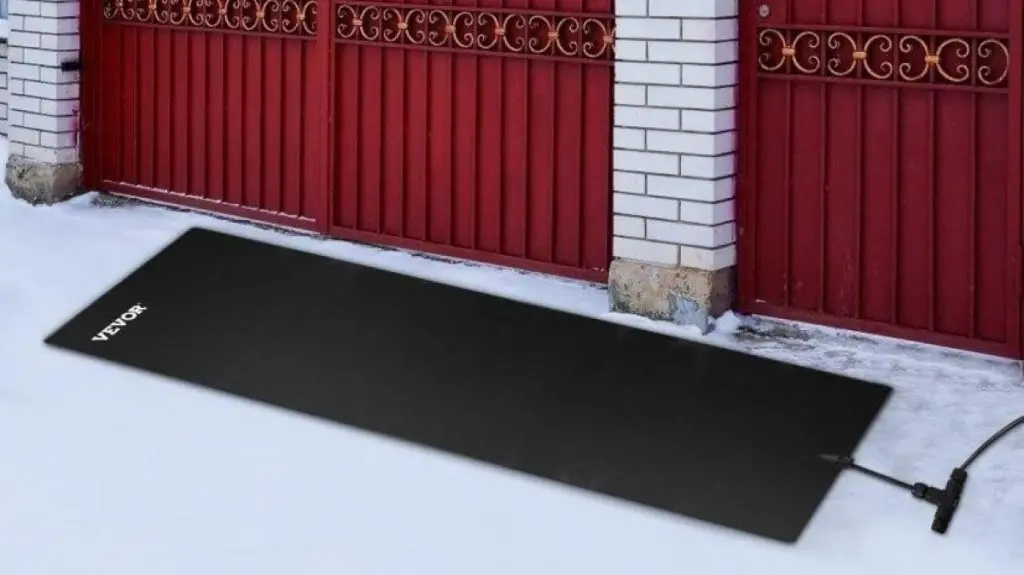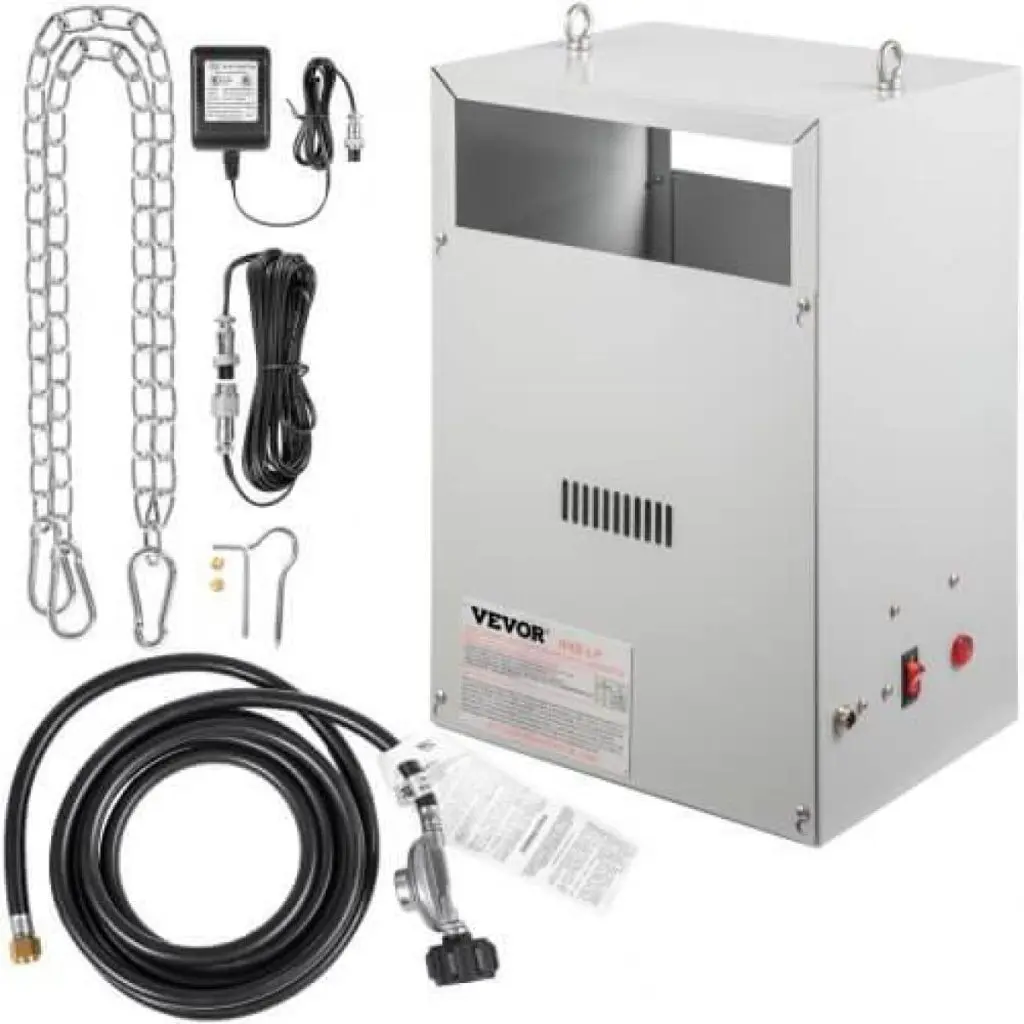If you have no idea what all of those numbers mean on your pressure washer, you’ve come to the right place. One of the units of measurement you might come across is PSI. PSI is perhaps the most important unit of measurement you need to be familiar with when it comes to your pressure washer.
The reason for this is that PSI dictates the amount of pressure that your pressure washer generates. How much pressure your pressure washer generates will affect your overall results, with VEVOR pressure washers always being powerful! So, what PSI pressure washer do you need?
Table of contents
What is PSI?
Before we can talk about determining the right amount of PSI for you, you first need to know what it is. PSI stands for pounds per square inch. It’s a specific unit of measurement. It measures how much force the water stream exerts.
This is an important specification because it tells you exactly how much cleaning power your pressure washer has.
PSI is an indication of the amount of pressure water has when it hits the cleaning surface. This is therefore important to know because it directly impacts how well the unit in question can clean a surface.
The higher the PSI is, the more powerful the pressure washer is. A lighter-pressure washer might only have a PSI up to 2000. This is fine for cleaning outdoor furniture and cars.
We then have more powerful models. These could range up to 2800 PSI. These are generally ideal for cleaning things like patios and decks. If you’re looking to clean concrete surfaces, you’ll want to get something with 2008 100 PSI and up.
Why Does PSI Matter for Pressure Washers?
PSI is an important unit of measurement for pressure washers. It matters for a number of reasons. More than anything else, the PSI determines how effective the pressure washer will be. There are actually three main reasons why PSI matters for a pressure washer.
Cleaning Power
First and foremost, the PSI matters because it directly impacts the cleaning power. The more PSI your pressure washer has, the more powerful the stream. The more powerful the stream is, the better it is able to remove stuck debris. A very high-pressure unit is able to take paint right off of surfaces, for instance.
Surface Compatibility
The second reason why PSI matters is due to compatibility with surfaces. For example, if you are using very high pressure, you might damage fragile surfaces such as wood. However, there are surfaces that can also withstand much higher PSI levels. One of the most common ones is concrete.
Overall Versatility
The PSI, or more specifically the ability to adjust the PSI, is also important. The more adjustable the PSI is, the more uses you can use your pressure washer for. Therefore, we always recommend choosing the pressure washer with an adjustable PSI.
How to Choose the Right PSI for Your Pressure Washer
Now that you know what PSI is, it’s time for us to figure out how to choose the best PSI for your needs. To reiterate, light-duty cleaning jobs require a PSI of up to 1900. If you’re cleaning small decks and patios, cars, and outdoor furniture, this should be perfectly fine. It’s powerful enough to get surfaces clean without causing damage.

If you need to do medium-duty cleaning jobs, select a unit with anywhere between 2000 and 2800 PSI. This is good for cleaning larger patios, decks, sidings, and fences. They’re gentle enough for residential purposes, but powerful enough to remove stuck-on dirt. As you can tell, the type of surface is a big consideration here.
There are also pressure washers that have over 2800 PSI. These are ideal for cleaning large areas. This is especially the case for concrete-like sidewalks and driveways. They’re also ideal for removing paint and stains. Speaking of stains, the tougher the stains, the higher the PSI should be. This is especially the case for stains like paint or oil.
Other Factors to Consider When Choosing a Pressure Washer
Besides PSI, there are some other important factors to consider when choosing a pressure washer.
- Consider the GPM or gallons per minute. The more GPM your pressure washer has, the more water comes out at once. Make sure to balance the GPM and PSI for the best possible performance.
- Consider whether you want a gas or electric pressure washer. Gas-powered pressure washers are usually very portable and extremely powerful. They’re good for tough jobs but also need a lot of maintenance. Electric pressure washers are usually quiet and don’t need much maintenance. However, they’re also not as suitable for heavy jobs.
- Always consider how heavy and large the unit in question is. If it’s something that you need to take with you on the go, a compact unit is recommended.
- We recommend going for a model that comes with many different detergent tanks, nozzles, and other accessories.
- Keep the brand name in mind. Some brands produce better products than others. For instance, VEVOR is a great brand as far as pressure washers are concerned.
Pressure Washer PSI FAQ

Let’s go over a few of the most frequently asked questions about PSI and pressure washers.
What PSI pressure washer do I need for a driveway?
A driveway made of concrete requires a lot of pressure to clean properly. This is especially the case if there are oil spots and other tough stains on the concrete. A PSI of at least 3000 is recommended. If you can get closer to 4000 PSI, you’re on the right track.
What PSI do you need to clean concrete?
If you want to clean concrete, you need at least 2500 PSI. However, this is on the lower end of the spectrum. If the concrete is heavily stained or covered in oil spots, you’ll need one with up to 4000 PSI.
How much PSI pressure washer do I need?
For light-duty jobs, pressure washers with up to 1900 PSI will suffice. This is ideal for outdoor furniture, cars, and smaller patios. For siding and fences, try to choose a model with up to 2800 PSI. For concrete driveways and sidewalks, choose a model with 2900 PSI or over.
How much PSI to clean a wooden patio with a pressure washer?
Remember that wooden patios can be somewhat fragile and delicate. Therefore, you don’t want to use too much power. A pressure washer with up to 2500 PSI is ideal for this. However, if the wood is old and degrading, you may want to stick with 1500 PSI.
How much PSI to clean my car with a pressure washer?
Cars can also be somewhat delicate. Too much PSI for a car may result in the paint being stripped. You need to make sure to provide enough power to clean the car while also preventing paint stripping. A pressure washer with a PSI of up to 1900 is recommended. Although, if you’re worried, start with around 1200 PSI.
What PSI for cleaning windows?
If you’re planning on cleaning windows, don’t go above 1500 PSI. Some windows can be relatively fragile. If you use too much pressure, you might shatter a window. You also don’t want to break the window seals. Around 1200 to 1500 PSI is best.
What PSI to clean house siding?
If you’re just looking to clean the siding on your house, up to 2500 PSI is ideal. However, for more fragile types of siding, 1500 PSI is recommended. Most types of siding should be able to withstand this much pressure.
Is too much PSI a bad thing?
In some cases yes, too much PSI can be a bad thing. Glass, wood, and painted surfaces can all take damage from too much pressure. It’s recommended to always start with the lowest PSI possible, and then work your way up from there as needed.
Final Thoughts on What PSI a Pressure Washer Needs
You should now know virtually everything there is to know about PSI and pressure washers. We provided you with all of the information necessary to choose the proper PSI level for the job at hand. Just remember to start slow and then work your way up. You don’t want to use too much pressure right from the beginning, or else you may end up damaging surfaces. A really good way to start is by using a pressure washer from the VEVOR brand name. These pressure washers are designed to last for a long time, they’re powerful, and they won’t cost you an arm and a leg.





